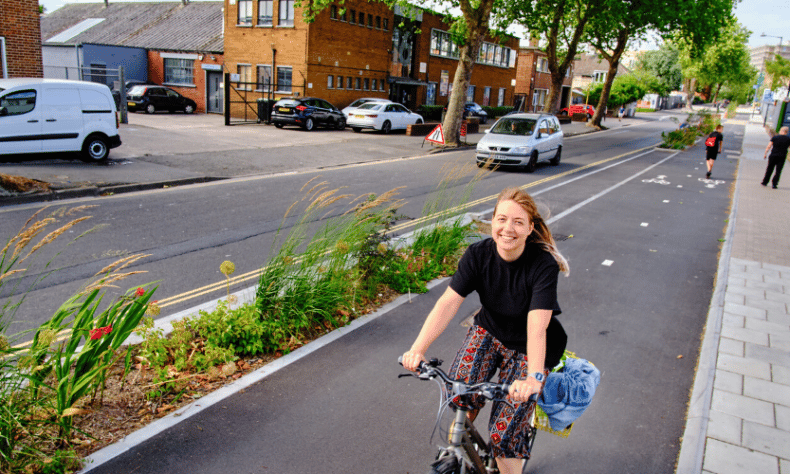Investment in cycling has an important role to play in tackling inequality in Bristol, according to the UK’s most comprehensive assessment of cycling in cities, Bike Life.
The report, which is the third in Bristol, surveyed more than 1,400 residents to find out more about their cycling habits, satisfaction, and the impact of cycling in the city.
It found that only 9% of people with semi-skilled and manual jobs, homemakers or unemployed people currently cycle, and are also the least likely to own a car – making it harder for them to reach employment, healthcare and other everyday services around the city.
And, whilst more than a third of this group wants to start cycling, concerns about safety, a lack of confidence, and the cost of a suitable bike were all barriers stopping them from riding.
“Cycling has real potential to reduce inequality in Bristol, helping people get to employment, healthcare and everyday services. But this will only happen if everyone feels that cycling can be a viable option for them. We need to make it an attractive, accessible and safe option.
Our research shows that people really do support more investment in cycling in the city and that people want to cycle more. By designing and building infrastructure that caters for everyone’s needs, we can help ensure cycling in Bristol is more equal, reducing transport poverty and helping to improve overall everyday cycling levels.
We’ll need to see a step-change in the levels of funding available for cycling if this is to happen.”
Bristol’s One City Plan, launched by Marvin Rees in 2019, acknowledges the need to increase active travel in the city, setting a target for a minimum of 40% all journeys being made actively by 2030. The plan also sets a goal to deliver a safe, simple convenient and accessible cycle network across the West of England, for commuting and leisure purposes and to increase cycling uptake.
As well as the socio-economic inequality seen in cycling in Bristol, the Bike Life report also found that women, people from minority ethnic groups and disabled people are all less likely to cycle than their white, male, non-disabled counterparts.
“We welcome these findings, which support our own data showing that rates of cycling are lower in areas of higher deprivation. Tackling inequality is a key challenge and this survey has provided valuable insights that can inform ongoing work.
In the past few years, the council has invested over £19million in new or upgraded bicycle routes – with many routes specifically chosen to improve access to deprived areas of the city. We are also developing and extending existing routes to improve safety and inspire confidence.
Increasing cycling rates has an important role to play in tackling inequality, from helping people access employment opportunities to improving public health and air quality. I encourage anyone who wants to learn to sign up for cycle training, or our loan bike scheme, which lets you try out bikes without committing financially. We are committed to helping everyone in Bristol start cycling if they want to.”
Run by Sustrans in partnership with Bristol City Council, Bike Life is part of a wider piece of research by Sustrans covering 17 cities across the UK, assessing cycling development, attitudes and behaviour in each city.
Key statistics from Bike Life Bristol report:
- Only 9% of people in socio-economic groups D and E in Bristol currently cycle at least once a week
- 35% of people in socio-economic groups D and E in Bristol would like to start cycling and the largest barrier is concerns about safety
- 40% of people in socio-economic groups D and E in Bristol do not have a car or van in their household (compared to 89% in socio-economic groups A and B). This means that having access to alternative, affordable forms of transport is essential in enabling access to employment, education, health and other facilities.
- 62% of Bristol residents would like to see more government spending on cycling
- 66% of Bristol residents think fewer motor vehicles on our streets would be useful to help them cycling more
- 70% of residents support building more protected on-road cycle tracks, even when this would mean less room for other road traffic
BikeLife | Bristol 2019 (3MB)
Find out more
Image: Sustrans
